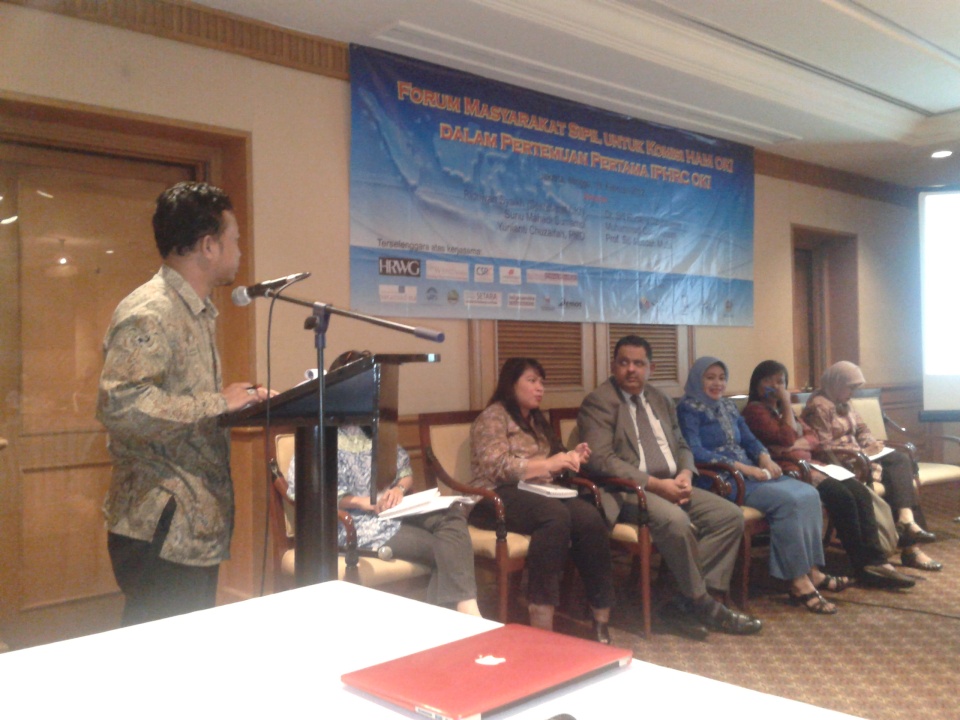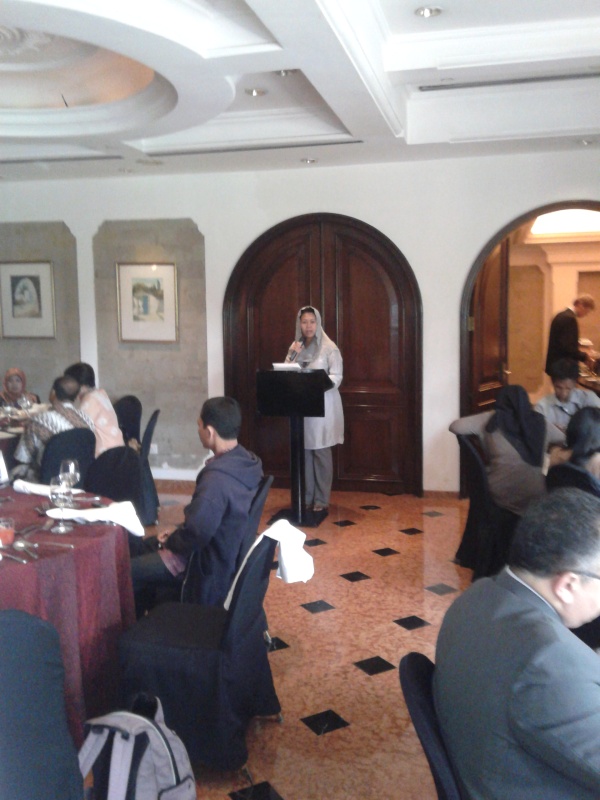Rabby Pramudatama, The Jakarta Post, Jakarta | Wed, 02/22/2012
The newly-established human rights commission at the Organization of Islamic Cooperation (OIC) should work together with civil organizations in order to improve human rights protection, rights watchdogs have said.
To make the collaboration run smoothly, the OIC’s Independent Permanent Human Rights Commission (IPHRC) needs to give civil society access to information about human rights issues.
“Based on my experience, state-level organizations’ credibility and accountability improves if they succeed in building constructive engagement with various civil society groups,” Human Rights Working Group (HRWG) executive director Rafendi Djamin said on Tuesday.
The OIC, an organization that attempts to be the collective voice of the Muslim world (Ummah), set up the IPHRC in June 2011, in Astana, Kazakhstan.
As a member, Indonesia has been appointed to hold the first meeting, which took place at a Central Jakarta hotel from Monday to Friday this week. Other elements of civil society expressed hopes that the IPHRC, as the new commission, was perceived as more progressive compared to other human rights bodies at the regional level.
The IPHRC recognized the role of civil society organizations in promoting and protecting human rights in Muslim countries as stated in Article 15 of its statute. National Commission on Violence against Women (Komnas Perempuan) chairperson Yuniyanti Chuzaifah said it was crucial for the IPHRC to expand its mandate.
“The IPHRC should have the authority to monitor its member countries and the results should be verified with information provided by civil society,” she said.
Zannuba “Yenny” Wahid, the director of the Wahid Institute and also the daughter of Indonesia’s fourth president, the late Abdurrahman Wahid, highlighted the challenges that the IPHRC faced.
“The commission is facing a great challenge, because according to its statute it has no binding resolution,” she told The Jakarta Post.
The IPHRC’s statute article 12 stipulates, “The commission shall carry out consultative tasks for the council and submit recommendations to it. It shall also carry out other tasks as may be assigned to it by the summit or the council.”
Despite its lack of binding power, Yenny said that the commission was still making good progress in regard to its function as an official permanent body that could, at least, set standard recommendations on human rights issues.
She said that on a domestic level, Indonesia’s main problem on human rights issues was the government’s lack of political will, which she deemed as the source of almost all human rights violations occurring across the country.
Many deemed that the creation of the IPHRC was a major breakthrough in the Islamic world, because many Muslim countries were criticized for their incompatibilities with human rights norms.
On Monday, the first day of the IPHRC’s meeting, Indonesia’s representative to the commission, Siti Ruhaini Dzuhayatin, was appointed as the chairperson of the commission among all 18 commissioners.
“I think the protection of religious minority groups is one of my missions in the IPHRC,” she told the Post.
She said that the issue had not become the commission’s agenda but she would highlight violence against religious minority groups to commission members.
Source: http://www.thejakartapost.com/news/2012/02/22/oic-body-told-engage-civil-groups.html










